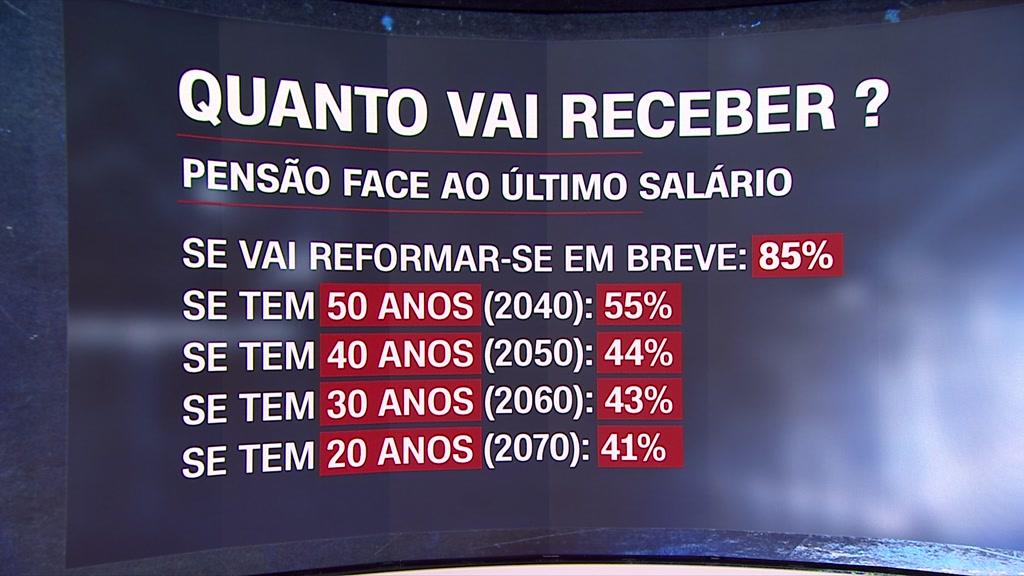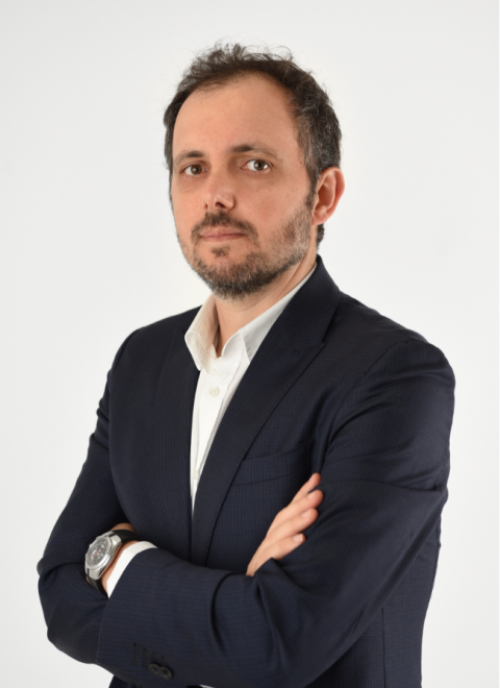Inflation isn't a problem: it's an opportunity
Inflation is not the problem when everything goes up, not just food, clothing or telecommunications services, but also wages, interest rates or real estate assets. Energy costs are the real problem. Taxes will continue to rise to finance deficits and sectors such as education and health.
The financial plan can live with inflation, as long as it is not the hyperinflation of the Weimar Republic or Venezuela, and as long as it does not keep the money in current accounts.
Yes, recession is coming, with unemployment and impoverishment. What are you waiting for?
An introduction to inflation
In my early teens, I saw a movie called Cocktail, in which the main character played by Tom Cruise revealed her dream of making her first million. I found it interesting and went to see how much would be 1,000,000 usd in escudos at the end of the 80s of the last century. I was scared. Consulting the historical quotations, I see that I would have to make about 150 million escudos. And even if I thought of escudos, taking into account the average salaries at the time, it would be difficult to reach the million escudos.
Today the situation is not very different, since hardly anyone will ever have 1 million euros in their lives. And I'm not even considering the monetary illusion that inflation causes in the value of each currency over the years.
This is to point out that it's not the value that matters. What might be a lot of money for me, for you, dear reader, might be little. We must therefore know which value satisfies us and set a plan to achieve it. And yes, don't worry about inflation.
Back in the 1980s and 1990s, we were living in a time of high inflation and interest rates and robust economic growth. Without wanting to compare, because they are different times and history does not repeat itself, it serves, however, to contextualize and justify that high inflation can no longer be the problem, the opportunity has passed.
After the arrival of the euro, the technological crisis and the great financial crisis, we are living through calm times, with controlled inflation, low interest rates, progressive growth, high liquidity and financial and non-financial assets and appreciation - Goldilocks.
But times have changed
And they changed already before the pandemic and well before the war. These two black swans precipitated changes and anticipated the path of deglobalization and the energy transition that, after being peaceful, became highly problematic. Faced with the end of the great moderation, choices have to be made, as revealed in this article by FundsPeople, BlackRock.
Central banks will do everything to destroy demand and the economy and thus slow down inflation. But energy costs will remain high and central banks can do little to contain this problem. So it's up to you, too, to think about how to reverse the situation.
When we think about inflation, we end up not looking specifically at its components. Probably, for each family, the level of inflation is much higher because the weight of housing and energy makes a bigger dent than what the official numbers indicate.
We know that inflation is a tax, a form of impoverishment, a transfer of wealth from savers to the state and/or debtors. So what to do? As well as tax efficiency, we also have to work on efficiency and productivity in investment, personal finance and our business activity. So inflation has an additional benefit: it will make us more productive. The level of liquidity will decrease, recourse to debt will become more difficult and this can only mean healthier growth in the future. Do more with less.
I have written the term inflation too many times in this article, when my aim is simply to forget about it. Its media coverage distracts us from reality: crisis in democracies, less economic and political power, more conflicts and more poverty.

Those who follow me in these articles already know: define a plan with goals, pay attention to your risk tolerance, your preferences and restrictions, and follow the plan. Invest with low-cost, well-diversified assets and make periodic reinforcements. In a long-term objective, daily volatility is not risk, it is the market at work. Take advantage of the opportunities to analyze your portfolio and your current assets of financial assets, real estate, cars, paintings, wines, gold, among others. Yes, heritage has a broad meaning. Take a global view of it and think about where you want to be in 5, 10 or 30 years.
It is at these times that we have to stop and think about our main financial regrets: have we not saved enough for retirement? Do we place too much weight on consumption? Have you ever thought about waste? Do you have an emergency fund?
What is within our reach?
Look for solutions that help you save more. Delaying consumption is perhaps the most important and the most difficult. Make the most of your time and the virtues of patience. The importance of time: stop trying, I wrote days ago about our main wealth, time.
Within our reach is the possibility of finding out more, looking for knowledge about savings instruments, taking advantage of interest rate hikes, preparing our home for the winter, choosing the best investment alternatives.
This is also the time to cut down on waste. Have you seen the amount of things you buy without needing? Do you know how much money you spent on trading commissions trying to find the best time to buy and sell stocks or cryptocurrencies? The truth is that most investors have a much lower return than the market because they waste resources on emotional decisions.
What about your personal finances, have you looked at your expense statement? And is your debt under control?
I'll say it again: savings are within our reach. I remember what Morgan Housel says in his book The Psychology of Money: Savings is the difference between disposable income and your ego. Therefore, invest in the concept of having Savings as a priority – pay yourself first, as I mentioned in an article in the Observer which is about 1 year old.
Right now the speech is too pessimistic! Let's look ahead
Yup. Let's fast forward and prepare for what's coming: high but more controlled inflation, high energy costs and a less global world with more uncertainty.
The question we ask in times of crisis is: what to expect from the future? Deep down, hope for the best, but in the meantime, prepare for the worst. Optimism tells me that the world will be better in the future, but the path is made of ups and downs. We are heading towards a new, more uncertain period, which we can call the Great Uncertainty. Living with more inflation and higher rates, or even with deep recessions and permanent geopolitical tensions.
The dilemma of growth and inflation will last.
But this uncertainty brings opportunities...
Going back to the beginning, inflation is not the problem. Our biggest problem at the moment is the transfer of wealth that we are seeing to the holders of oil, gas and energy reserves and to the indebted States that see their debts being "paid" artificially by the devaluation of the currency and "insurance" by the comfort of central banks.
This problem goes straight to the heart of the industry and families. At an early stage, a reduction in gas, electricity and fuel consumption is to be expected and less money to invest in innovation, for example.
But if we accumulate savings and capital for the future, if we prepare ourselves, opportunities will appear: asset prices are and will fall, technological innovation to transform the way of production in industry and air conditioning in homes will be central in the future, the Population aging will bring ongoing health and wellness needs, the energy sector needs disruption and hydrogen could be a solution.
But there it is, we need time and patience.
To sum up
Disconnect from the noise of everyday life. Forget the word inflation and look at your wealth situation. Try to improve the conditions of your home loan. In this specific case, Bankinter took the first step: Bankinter lowers the minimum spread on mortgage loans to 0.85%. Look at your PPRs, analyze them and compare them to the competition. Look at your cash on hand and look for alternatives that meet your long-term goals. Invest it. Change your consumption habits and make your home more efficient. Protect yourself from what's coming and prepare for opportunities.
WE WANT TO HELP YOU BE A BETTER INVESTOR:
- We help you develop your Investment Policy Statement;
- We develop individual or group training on investments and savings;
- We quantitatively analyze your current portfolio with Future Analyzer's computational technology and finances;
- Request more information about the investment advisory service provided through Banco Invest.
FAQ
In economics, Goldilocks means an economy in its ideal state, that is, it does not grow very much avoiding excessive inflation and maintains a progressive and sustained growth to avoid recessions.
Inflation is the general rise in the price level. We can also see inflation as the systematic devaluation of the value of currency.

Vítor is a CFA® charterholder, entrepreneur, music lover and with a dream of building a true investment and financial planning ecosystem at the service of families and organizations.
+351 939873441 (Vítor Mário Ribeiro, CFA)
+351 938438594 (Luís Silva)
Future Proof is an Appointed Representative of Banco Invest, S.A.. It is registered at CMVM.

